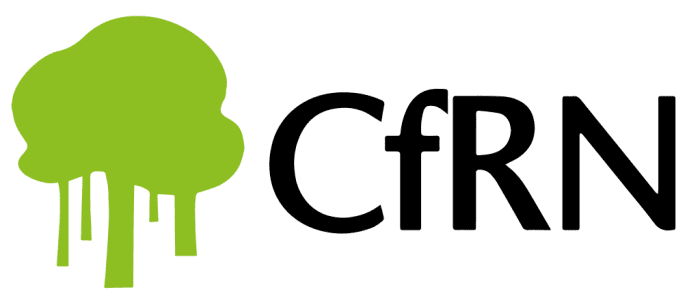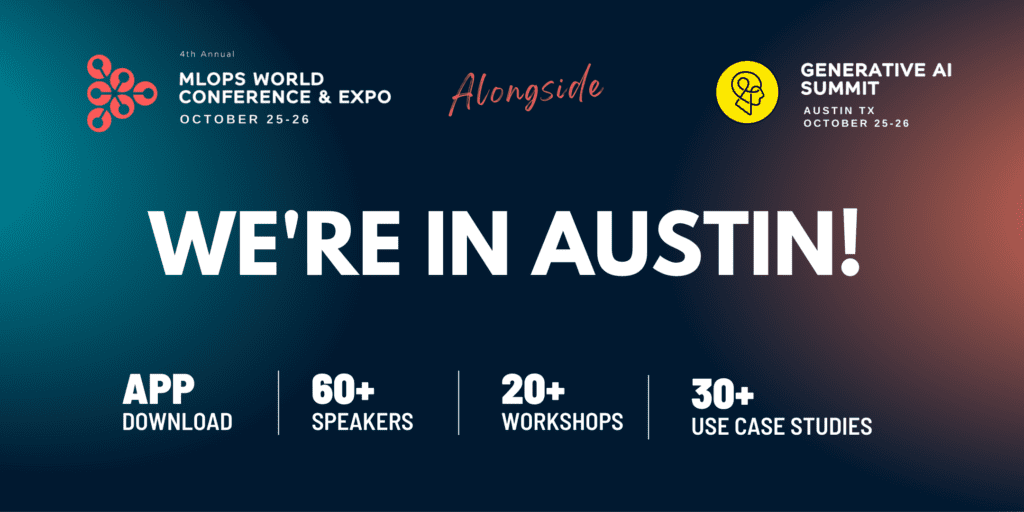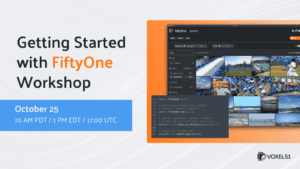We just wrapped up the Oct 12, 2023 Computer Vision Meetup, and if you missed it or want to revisit it, here’s a recap! In this blog post you’ll find the playback recordings, highlights from the presentations and Q&A, as well as the upcoming Meetup schedule so that you can join us at a future event.
First, Thanks for Voting for Your Favorite Charity!
In lieu of swag, we gave Meetup attendees the opportunity to help guide a $200 donation to charitable causes. The charity that received the highest number of votes this month was The Coalition for Rainforest Nation (CfRN), an organization working on the responsible stewardship of the world’s last great rainforests to achieve environmental and social sustainability.. We are sending this event’s charitable donation of $200 to CfRN on behalf of the computer vision community!


Bridging the Gap: Advancing Civil Engineering Inspections with Computer Vision
Civil engineering structures such as power plants, sewers, and bridges form essential components of the public infrastructure. It is mandatory to keep these structures in a safe and operational state. In order to ensure this, they are frequently inspected where the current recognition and documentation of defects and building components is mostly carried out manually. A failure of individual structures results in enormous costs. For example, the economic costs caused by the closure of a bridge due to congestion is many times the cost of the bridge itself and its maintenance.
Recent advancements in hardware and software offer great potential for increasing the quality, traceability, and efficiency of the structural inspection process. In particular, methods from the field of computer vision play an important role. The new techniques support the inspection engineer at the building site, raising quality and efficiency of the inspection. There is a high demand worldwide for the automation of structural inspections in the areas of building construction, bridge construction, tunnel construction, sewage plants, and other critical infrastructures.
In this talk Johannes will introduce the audience to visual defect recognition on buildings. Also highlighted will be the workshop at WACV 2024 and the hosted challenge, “dacl-challenge”.
Speaker: Johannes Flotzinger is a Civil Engineer and Research assistant at Universität der Bundeswehr München.
Q&A
- Why do wet spots, weathering, load bearing, and drainage have the same colors? Are you considering them the same?
- Is the data making use of segmentations or human made annotations?
Resource links
- Challenge at WACV 2024
- View Dataset in your browser via FiftyOne
- Hugging Face Space for the baseline
- Toolkit with additional info on the dataset and how to load it
- dacl10k dataset paper
- Workshop website at WACV 2024
Adapting to Change: Foundation Models, APIs, and the Past, Present and Future of AI Development
This talk presents a reflection over the evolving landscape of AI development, focusing on the transition from individual small models, served on cloud or prem infrastructure – to the contemporary era characterized by the prominence of foundation models and APIs. The talk delves into the practical implications of these shifts, emphasizing their impact on AI development strategies, touching pros and cons, as well as data and privacy implications
Speaker: Pietro Bolcato is an experienced AI Engineer, holding a double master’s degree focused in Deep Learning and Artificial Intelligence from TU Berlin and KTH Stockholm. With years of experience ranging from the research field to startups, he has always focused on Generative AI – delivering end-to-end solutions that are scalable, efficient and reproducible.
Q&A
- What are your thoughts on image embeddings? Especially, the granularity with similar images?
- Why is it that smaller models and higher quality data perform better than large models with lower quality data?
- Is there a faster way for annotating images?
Deci Diffusion: Triple the Speed of Stable Diffusion
Introducing DeciDiffusion 1.0. A new text-to-image 820 million parameter text-to-image latent diffusion. The model trained is on the LAION-v2 dataset and fine-tuned on the LAION-ART dataset. While it maintains foundational architecture elements from Stable Diffusion, such as the Variational Autoencoder (VAE) and CLIP’s pre-trained Text Encoder, DeciDiffusion’s primary innovation is the substitution of U-Net with the more efficient U-Net-NAS. In this talk, I’ll dive into the architectural innovations and showcase DeciDiffusion in action!
Speaker: Harpreet Sahota is the Deep Learning Developer Relations Manager at Deci AI.
Resource links
- Try Deci Diffusion on HuggingFace Spaces
- DeciDiffusion Notebook.ipynb
- The Deep learning Daily Community
Discount code for MLOPS World – Oct 25-26 in Austin, TX


The folks at MLOPS World sponsored this month’s Meetup and are passing along a $25 discount to the Oct 25-26 conference in Austin.
- Featuring 2 days of sessions, socials, case studies, and workshop tutorials
- Speakers from OpenAI, Meta, HuggingFace, Spotify, Doordash, NASA and more
- Register with the discount code.
- Learn more about MLOPS World
Join the Computer Vision Meetup!
Computer Vision Meetup membership has grown to almost 6,000 members in just one year! The goal of the Meetups is to bring together communities of data scientists, machine learning engineers, and open source enthusiasts who want to share and expand their knowledge of computer vision and complementary technologies.
Join one of the 13 Meetup locations closest to your timezone.
- Ann Arbor
- Austin
- Bangalore
- Boston
- Chicago
- London
- New York
- Peninsula
- San Francisco
- Seattle
- Silicon Valley
- Singapore
- Toronto
We have exciting speakers already signed up over the next few months! Become a member of the Computer Vision Meetup closest to you, then register for the Zoom.
What’s Next?


Up next on Oct 25 at 10 AM Pacific we have the “Getting Started with FiftyOne Workshop.”
Register for the Zoom here. You can find a complete schedule of upcoming Meetups and workshops on the Voxel51 Events page.
Get Involved!
There are a lot of ways to get involved in the Computer Vision Meetups. Reach out if you identify with any of these:
- You’d like to speak at an upcoming Meetup
- You have a physical meeting space in one of the Meetup locations and would like to make it available for a Meetup
- You’d like to co-organize a Meetup
- You’d like to co-sponsor a Meetup
Reach out to Meetup co-organizer Jimmy Guerrero on Meetup.com or ping me over LinkedIn to discuss how to get you plugged in.
—
The Computer Vision Meetup network is sponsored by Voxel51, the company behind the open source FiftyOne computer vision toolset. FiftyOne enables data science teams to improve the performance of their computer vision models by helping them curate high quality datasets, evaluate models, find mistakes, visualize embeddings, and get to production faster. It’s easy to get started, in just a few minutes.
